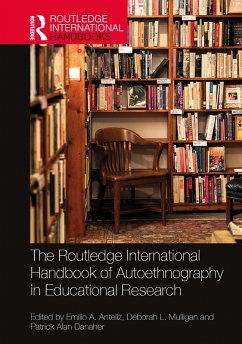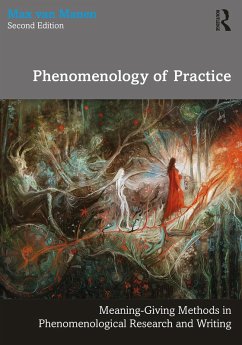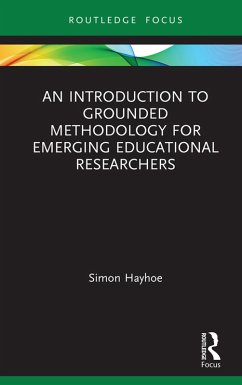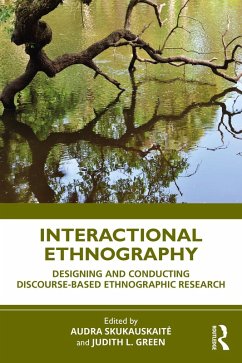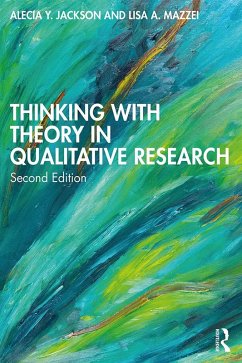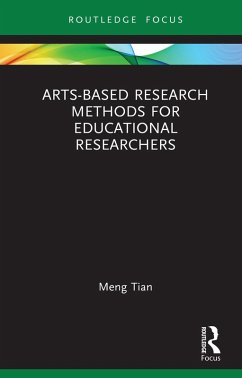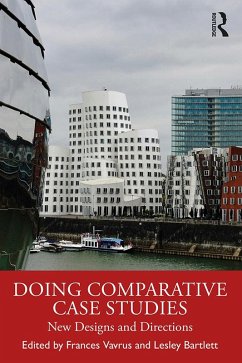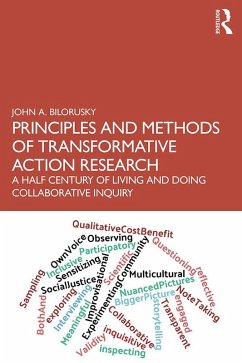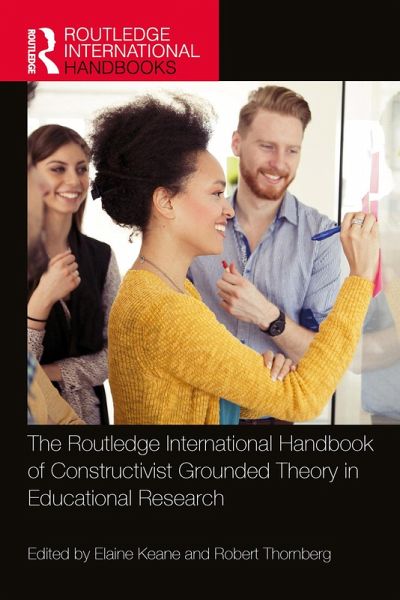
The Routledge International Handbook of Constructivist Grounded Theory in Educational Research (eBook, PDF)
Versandkostenfrei!
Sofort per Download lieferbar
47,95 €
inkl. MwSt.
Weitere Ausgaben:

PAYBACK Punkte
24 °P sammeln!
The Routledge International Handbook of Constructivist Grounded Theory in Educational Research provides a comprehensive overview of the state of the art in Constructivist Grounded Theory (CGT) methodology, including core grounded theory tenets and processes as well as constructivist 'adaptations'. It features CGT research from across the education sector, including studies based in primary schooling, post-primary (second-level) schooling, and higher education.Across 5 parts and 20 chapters, the book makes explicit how CGT techniques and processes were implemented in the field, the way(s) in wh...
The Routledge International Handbook of Constructivist Grounded Theory in Educational Research provides a comprehensive overview of the state of the art in Constructivist Grounded Theory (CGT) methodology, including core grounded theory tenets and processes as well as constructivist 'adaptations'. It features CGT research from across the education sector, including studies based in primary schooling, post-primary (second-level) schooling, and higher education.
Across 5 parts and 20 chapters, the book makes explicit how CGT techniques and processes were implemented in the field, the way(s) in which challenges were navigated, and how educational researchers aligned their research processes to constructivist principles. It offers exemplars of good practice by educational researchers from Australia, Ireland, Italy, Norway, Sweden, Switzerland, the UK, and the USA. The Handbook synthesises learning from the experiences of CGT researchers in education to establish a framework of guidance for early career and more experienced researchers. Additionally, it directly interrogates and considers how to address challenges in the implementation of high-quality CGT and looks to the future of the methodology in educational research.
This Handbook provides guidance and education-specific examples to doctoral students and researchers who wish to use or are using CGT in educational research. It will also be of significant interest to qualitative researchers in other disciplines like sociology, psychology, and nursing.
Across 5 parts and 20 chapters, the book makes explicit how CGT techniques and processes were implemented in the field, the way(s) in which challenges were navigated, and how educational researchers aligned their research processes to constructivist principles. It offers exemplars of good practice by educational researchers from Australia, Ireland, Italy, Norway, Sweden, Switzerland, the UK, and the USA. The Handbook synthesises learning from the experiences of CGT researchers in education to establish a framework of guidance for early career and more experienced researchers. Additionally, it directly interrogates and considers how to address challenges in the implementation of high-quality CGT and looks to the future of the methodology in educational research.
This Handbook provides guidance and education-specific examples to doctoral students and researchers who wish to use or are using CGT in educational research. It will also be of significant interest to qualitative researchers in other disciplines like sociology, psychology, and nursing.
Dieser Download kann aus rechtlichen Gründen nur mit Rechnungsadresse in A, B, BG, CY, CZ, D, DK, EW, E, FIN, F, GR, HR, H, IRL, I, LT, L, LR, M, NL, PL, P, R, S, SLO, SK ausgeliefert werden.





